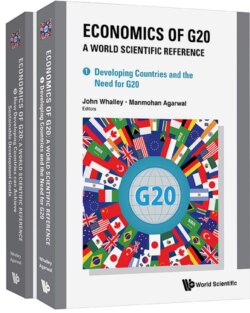Читать книгу Economics of G20 - Группа авторов - Страница 12
На сайте Литреса книга снята с продажи.
Chapter 1 G20 and International Economic Coordination: Lessons from the Inter-War Years
ОглавлениеManmohan Agarwal
Centre for Development Studies Thiruvananthapuram, India manmohan44@gmail.com
Abstract
The inter-war years were a period of considerable turbulence. To tackle the problems left over from the war, governments tried to cooperate at various levels through the establishment of central banks in the countries formed after the breakup of the Austro-Hungarian Empire, negotiations about reparations and achieving monetary stability in order to help the recovery of the world economy. The more technical the problem, the greater the chance of reaching an agreement. But where power relations were involved, agreement could not be always reached. Germany being on the gold exchange standard, namely the sterling standard, was not acceptable to the US as Germany was an important economy, though smaller countries in East Europe being on the gold exchange standard was acceptable.
Today a host of international institutions with a history of cooperative behaviour make cooperation easier. The World Trade Organization (WTO) and financing from the International Monetary Fund (IMF) reduce the need for protectionist policies. Also, agreement was soon reached on additional funds for the IMF. However, agreement has not been so easy to reach in the Doha Round of multilateral trade negotiations or for additional funds and reform at the World Bank. The older powers are not so ready to cede power to the rising powers unless forced by circumstances, as the IMF had needed additional funds which initially have been used for loans to European countries.
